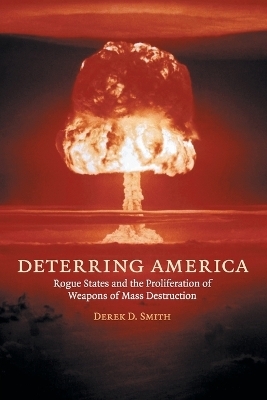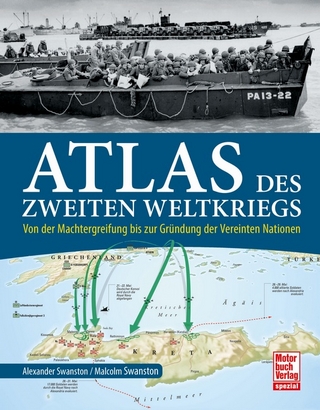
Deterring America
Rogue States and the Proliferation of Weapons of Mass Destruction
Seiten
2006
Cambridge University Press (Verlag)
978-0-521-68313-5 (ISBN)
Cambridge University Press (Verlag)
978-0-521-68313-5 (ISBN)
The events of September 11th have caused the United States to re-evaluate its policy towards 'rogue states' armed with weapons of mass destruction. The author argues that the United States may look beyond deterrence and give renewed attention to defensive measures, negotiated disarmament, interdiction, and perhaps preemption.
Faced with America's military superiority, many countries are turning to weapons of mass destruction (WMD) as a means to deter United States intervention. However, the events of September 11 awakened America to a degree of vulnerability it had never experienced before, making it increasingly unwilling to tolerate such weapons in the hands of unstable and unpredictable regimes. Through theoretical, historical, and prescriptive lenses, this book explores the modern security dilemma created by the twin fears of American encroachment and vulnerability which form a vicious cycle of insecurity that challenges traditional notions of deterrence. Using Iraq and North Korea as case studies, Smith argues that the United States may need to re-evaluate its foreign policy strategies against WMD proliferation, giving renewed attention to defensive measures, negotiated disarmament, interdiction, and perhaps preemption.
Faced with America's military superiority, many countries are turning to weapons of mass destruction (WMD) as a means to deter United States intervention. However, the events of September 11 awakened America to a degree of vulnerability it had never experienced before, making it increasingly unwilling to tolerate such weapons in the hands of unstable and unpredictable regimes. Through theoretical, historical, and prescriptive lenses, this book explores the modern security dilemma created by the twin fears of American encroachment and vulnerability which form a vicious cycle of insecurity that challenges traditional notions of deterrence. Using Iraq and North Korea as case studies, Smith argues that the United States may need to re-evaluate its foreign policy strategies against WMD proliferation, giving renewed attention to defensive measures, negotiated disarmament, interdiction, and perhaps preemption.
Derek Smith is currently studying at Yale Law School. He received an A.B. in Government from Harvard University and a D.Phil. in International Relations from Oxford University as a Keasbey Scholar. He has written articles on nonproliferation issues for Security Studies, National Security Studies Quarterly, and the Korean Journal of Defense Analysis and has taught international security courses at Oxford and Yale.
Part I: 1. Deterrence in a modern era; 2. Deterrence theory and its flaws; Part II: 3. Crisis and conflict with Iraq; 4. Deterrence and compellence with North Korea; Part III: 5. Counterproliferation strategies; 6. Preemptive and preventive war; 7. Establishing a global quarantine against WMD; Conclusion.
| Erscheint lt. Verlag | 25.5.2006 |
|---|---|
| Zusatzinfo | Worked examples or Exercises |
| Verlagsort | Cambridge |
| Sprache | englisch |
| Maße | 152 x 228 mm |
| Gewicht | 341 g |
| Themenwelt | Natur / Technik ► Fahrzeuge / Flugzeuge / Schiffe ► Militärfahrzeuge / -flugzeuge / -schiffe |
| Sozialwissenschaften ► Politik / Verwaltung ► Europäische / Internationale Politik | |
| ISBN-10 | 0-521-68313-0 / 0521683130 |
| ISBN-13 | 978-0-521-68313-5 / 9780521683135 |
| Zustand | Neuware |
| Haben Sie eine Frage zum Produkt? |
Mehr entdecken
aus dem Bereich
aus dem Bereich
von der Machtergreifung bis zur Gründung der Vereinten Nationen
Buch | Softcover (2023)
Motorbuch Verlag
24,90 €


